Tompkins County 4.5% Levy hike recommended
by Robert Lynch; September 6, 2025
[Writer’s note: Saturday night, Sept. 6th, a full four days after the Tompkins County Legislature had met and County Administration had presented its recommended 2026 Budget, a budget that impacts each of us, neither the County’s Communications Department nor any of this community’s media has written one word about this story. I had not intended to write about it myself, but will now do so in view of the dearth of reporting. Others may view the meeting differently. I will report it as I believe it deserves to be reported. / RL]
Korsah Akumfi, Tompkins County Administrator only since January, does things differently. And for reasons never fully explained this week, that departure from local custom includes how he fulfills his most vital public-facing responsibility of the year: presenting his department’s recommended annual budget to the Tompkins County Legislature.
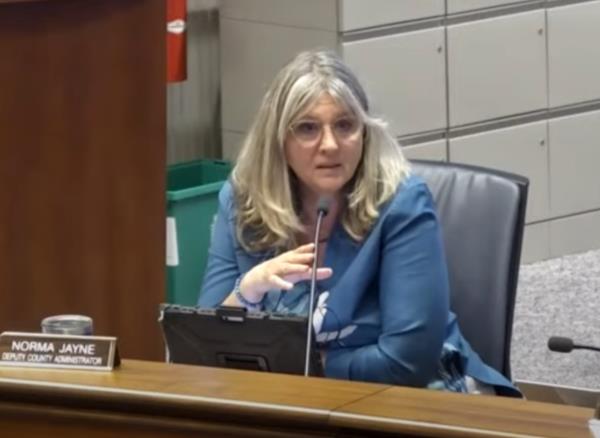
For the first time in anyone’s memory, the County Administrator didn’t present the budget himself. Instead, Akumfi let his second-in-command do it. Equate it to having the Vice President deliver the State-of-the-Union address.
For three-quarters-of-an-hour September 2nd, Deputy County Administrator Norma Jayne delivered to legislators and to the public the budget numbers and the explanations behind them. She struggled. Jayne’s halting, sometimes nervous speaking style gave testament to the likelihood that she’d been pressed into service on short notice.
As the Legislature Chair’s, Dan Klein, had turned last Tuesday’s meeting over to the County Administrator to unveil his fiscal recommendations, Akumfi, appearing only remotely via Zoom, responded, “I’m in the middle of a few things that I’m dealing with, so I will invite my deputy, Norma, to go through the presentation.” Klein may or may not have known in advance that it would be Norma, not Korsah who would navigate the PowerPoint.
Akumfi, as County Administrator, earns $180,000 annually. Before he was hired, Administrator’s pay was increased substantially over that of Akumfi’s predecessor, Lisa Holmes. (Those with long memories will recall that two years ago, after Holmes had inopportunely tested positive for COVID-19, she’d delivered the budget message remotely while under self-quarantine.)
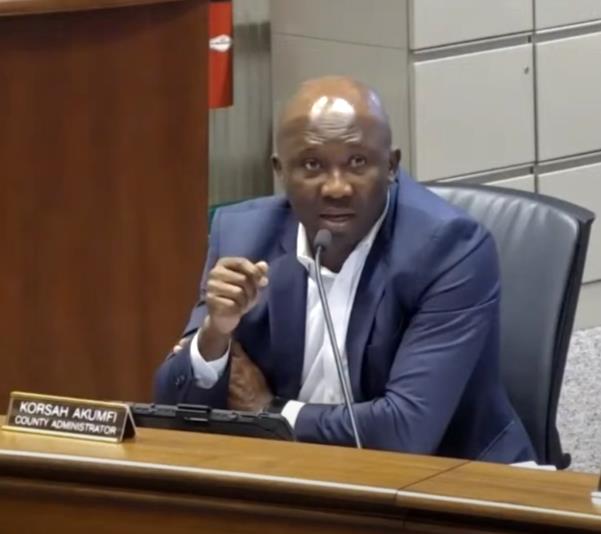
Two nights after this latest Tuesday budget presentation, and during the first of the Legislature’s many “Expanded Budget Committee” meetings—committee-of-the whole conclaves that commence with department and agency heads trudging in and defending why they need the money they want—Akumfi also appeared remotely, and spoke little. It was Deputy Administrator Jayne who again sat with legislators at the big, oval desk and represented Administration.
“I just wanted to say, nice job, Norma; it’s not easy to step in,” Budget, Capital, and Personnel Committee Chair Mike Lane commended Jayne following her budget briefing to the full Legislature. “I know Korsah would have been here if he could for the full presentation, but circumstances didn’t allow that,” Lane conceded.
And Lane’s words were all that would be said that night about why Akumfi was absent. And that absence helped explain why this year’s legislative budget rollout proved so different; so much less dramatic—and indeed, understated—from presentations of the past. The boss’s presence matters; it carries stature.
At this early stage, one shouldn’t paint the Tompkins County Budget with anything but the broadest of brushes. Specifics needn’t be memorized; because legislators will invariably amend many of them before a final vote in November. So here are those budget basics as Deputy Administrator Jayne presented them:
- The 2026 Recommended Budget would spend $239.8 Million, up $8.1 Million or 3.5 percent from the current 2025 budget.
- $57.3 Million would be levied in property taxes, an increase of 4.5 percent in the tax levy over that of the current year. The percentage increase stands 1.8 percent over the (pain-free and essentially-symbolic) New York State “tax cap” of 2.7 percent, a figure that still may change.
- For the “median” homeowner in Tompkins County—a largely-worthless metric in rural places like Enfield, as it assumes a house valued at $300,000—next year’s tax bill would rise by $37.
- Tompkins County’s Solid Waste Fee would again increase, this time from $82 to $85, even though ever-stricter Solid Waste rules lead the recycling truck to take less and less stuff.
- County funding of capital projects would eat up $7.7 Million. The investments would include preliminary spending toward the increasingly expensive $60 Million Downtown Center of Government. Much of the office building’s cost would be incurred in future years and bonded.
- The budget would continue the three-vehicle, limited-schedule Rapid Medical Response (RMR) emergency service into 2026, yet not expand it into a small-scale ambulance operation that some municipal advocates and departmental leaders have urged.
“The key message is despite our challenging economic condition, we’re proposing a responsible budget that exceeds the tax cap, but addresses critical needs,” Jayne told the Legislature in her introduction.
“This budget reflects the reality that sometimes responsible governance requires difficult decisions,” the Deputy Administrator concluded her PowerPoint narrative, this time apparently reading from Korsah Akumfi’s notes.
Korsah Akumfi, new to Tompkins County’s budget process this year, has adopted many new practices. Most notably he rejected early-on the long-standing Tompkins legislative tradition that starts the process in the spring with lawmaker-set targets that project maximum tax levy increases. Getting their top-level direction, administrators have traditionally then worked backwards and whittled departmental requests in an attempt to reach those target percentages.
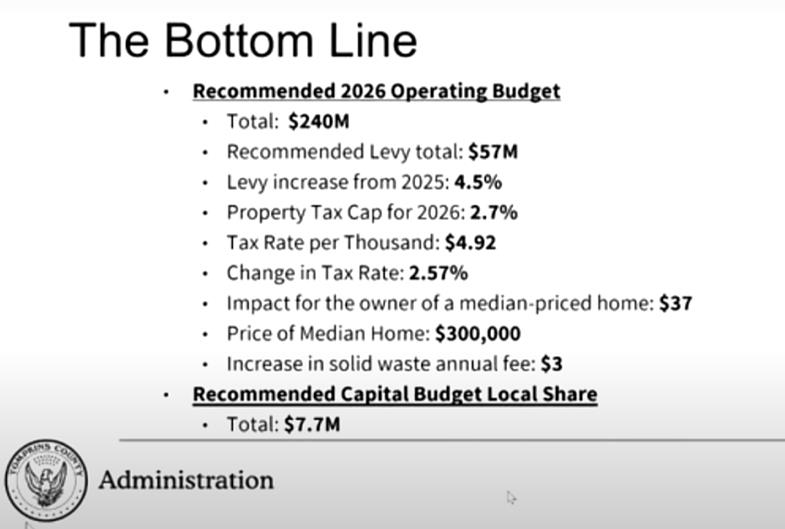
But instead, Akumfi bundles departmental requests first. His chosen method produced in late-July the unrealistic worst-case forecast of an $11 Million budget deficit and tax levy increases of 20 to 40 percent.
What Norma Jayne outlined at this month’s meeting, namely a 4.5 percent increase in the levy, stands more in line with revised estimates the County Administrator presented to the Legislature August 19. At that August meeting, Akumfi had held out recommended levy increases of four to four-point-five percent.
One year ago, when funding constraints were also tight, Tompkins’ legislators adopted a 2025 Budget that carried a 2.72 per cent tax hike, exactly equal to the tax cap.
To legislators who must withstand the annual multi-meeting ordeal of budget preparation, Administration’s altered format and its deconstruction of familiar—though quite likely, unique-to-Tompkins County—budgeting norms (and jargon) have left many confused. “Over-Target Requests” now become “Enhancements.” Former Legislature Chair Shawna Black was among the baffled.
“When I look at the budget book, I find it much more confusing than in years past,” Black informed Deputy Administrator Jayne last Tuesday, “because we aren’t able to clearly see what has been taken away from departments or nonprofits, or the Human Services Coalition (the group which reviews outside agency funding applications).”
“So what I would ask as we’re moving forward is that we actually have those line items of what’s been taken away, because we don’t know what we don’t know,” Black said.
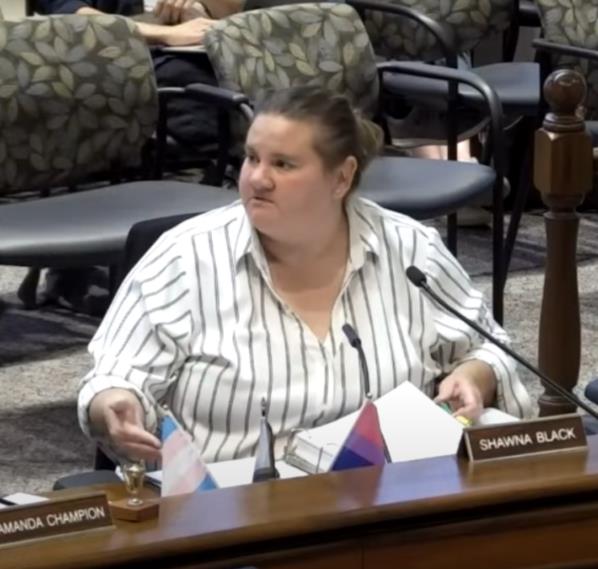
Deputy Administrator Jayne explained that the “in’s and out’s,” as Black described them, are, indeed, incorporated into the budget book, only that one has to search differently to find them.
As evidence of that bewilderment, legislator Amanda Champion found it necessary to ask whether the position of Chief Equity and Diversity Officer had secured retention within the Administration’s recommended proposal. Norma Jayne assured Champion that the job remained intact.
If there’s one outreaching initiative within the new administrative budget deserving attention—and maybe scrutiny—it may be a plan to bail out the overly-expensive, yet under-utilized Ithaca-Tompkins International Airport. The airport’s now “international” in name only.
As outlined in Jayne’s PowerPoint, and elaborated upon within the Administrator’s 5,600-word Budget Message, a narrative placed onto the Tompkins County website at the time of Tuesday’s meeting, $1.97 Million would be funneled into airport operations during each of the next three years. The lifeline would attempt to plug airport deficits, lower passenger rates, and make the local airport more competitive with reginal terminals in nearby, larger cities.
To resuscitate the airport and fund the initiative, the budget would draw $1.1 Million from Tompkins County’s newly-imposed sales taxes on short-term rentals, pull in another half-million by imposing room tax charges on those Airbnb-type hostels, with gather the remaining $371,000 from the property tax levy.
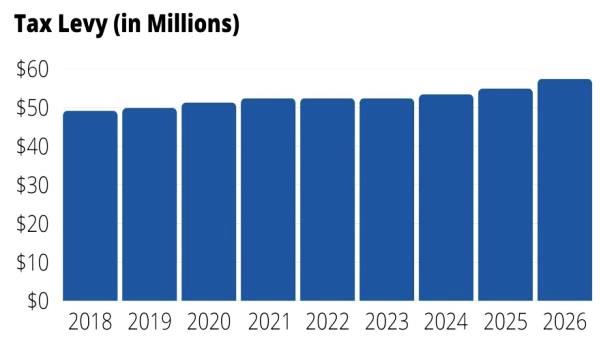
Still other Administrative-viewed priorities have captured their own budget lines. They include emergency shelter assistance for the homeless, and a “County-wide Security” initiative, disclosed only in recent weeks. It would institute magnetometer screenings and bag searches for visitors at the Tompkins County Whole Health Building and for attendees at meetings of the Legislature and its committees.
Exceeding the state tax cap “wasn’t our first choice,” Norma Jayne said, again reading from her boss’s script. But Albany mandates “account for nearly half of the increase,” Jayne recited. And from what Akumfi wrote and Jayne then read, the Administrator discounts any taxpayer pain inflicted by the levy increase he recommends.
“For the median homeowner, we’re talking about $37 per year, about a dollar a week,” Akumfi’s statement qualified, and spending it “to address humanitarian crisis, maintain infrastructure and invest in our economic future,” that latter defense clearly referencing the airport.
Of course, there’s also that office building
County administrators long before Korsah Akumfi have been warned not to get ahead of the elected lawmakers who employ them. And that demand for legislative supremacy resonated from a couple of those seated at the giant oval desk this past Tuesday night.
“We’re excited about having a recommended budget,” Budget Committee Chair Mike Lane explained before Jayne even took to the microphone. “But… as of course we always do, we will discuss it thoroughly and make whatever changes we think should be made to the budget, not because it’s not a good budget, but because that’s what we do,” Lane cautioned.
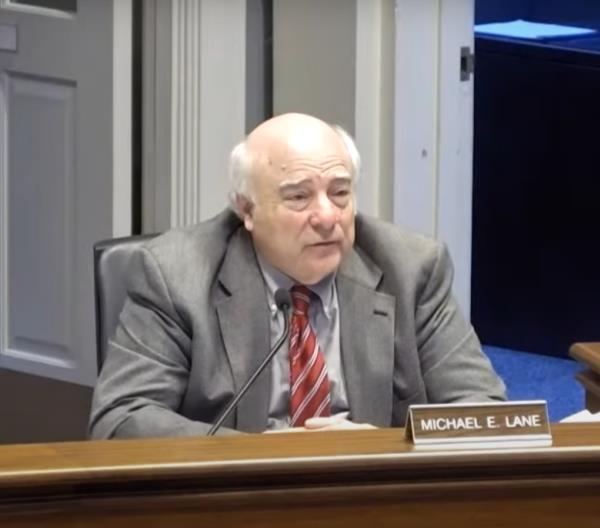
And that they do. Nearly a dozen meetings lie ahead to dissect what Administration has now proposed. Money usually gets added in, not taken away. But accumulated savings—the “fund balance,” in bureaucratic budget-speak—frequently gets tapped at the last minute to ease the tax bite. (Fund balance management deserves a story all its own.)
“This is just a proposed budget from the County Administrator,” Shawna Black noted as she tapped the brakes a bit midway through the deputy administrator’s presentation. “And so at the end of the day it’s up to the 14 of us. We can add things. We could take away. At some point we have to balance the budget.”
“If you decide that you want to spend the fund balance, that’s…” Jayne’s thought trailed off, but then snapped back. “Just keep in mind that every time we spend more of the fund balance, it’s harder to put that back in…. But certainly you can add items and increase the tax levy.”
Of course, taxpayers don’t like tax increases. On the other hand robbing government’s piggy bank to the average person may seem painless. Administrators think differently. Nonetheless, expect Akumfi’s 4.5 percent levy hike to become this year’s tax hike ceiling, never its floor.
“We’ve got a lot of work to do,” Groton legislator Lee Shurtleff wrapped up the budget discussion, speaking more to the room as a whole than to anyone in particular, including the County Administrator whose profile was limited to the still photo on his Zoom tile. But directed to Norma Jayne, Shurtleff remarked, “You’ve given us a solid proposal and a lot to consider.”
###

